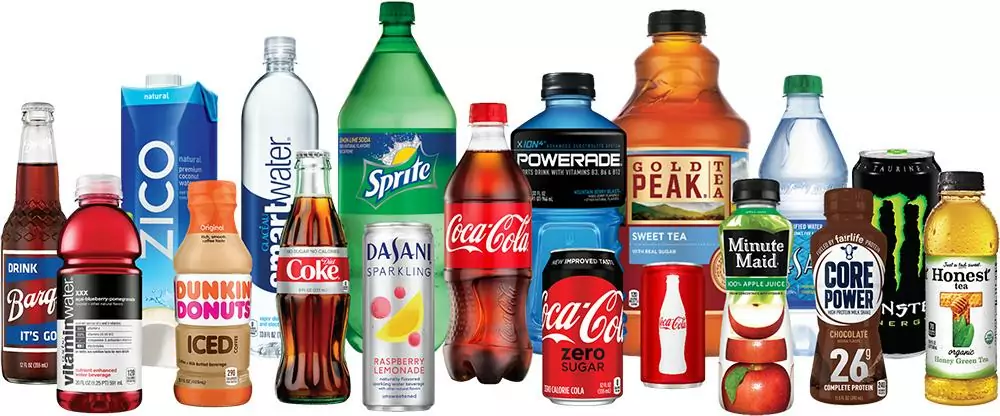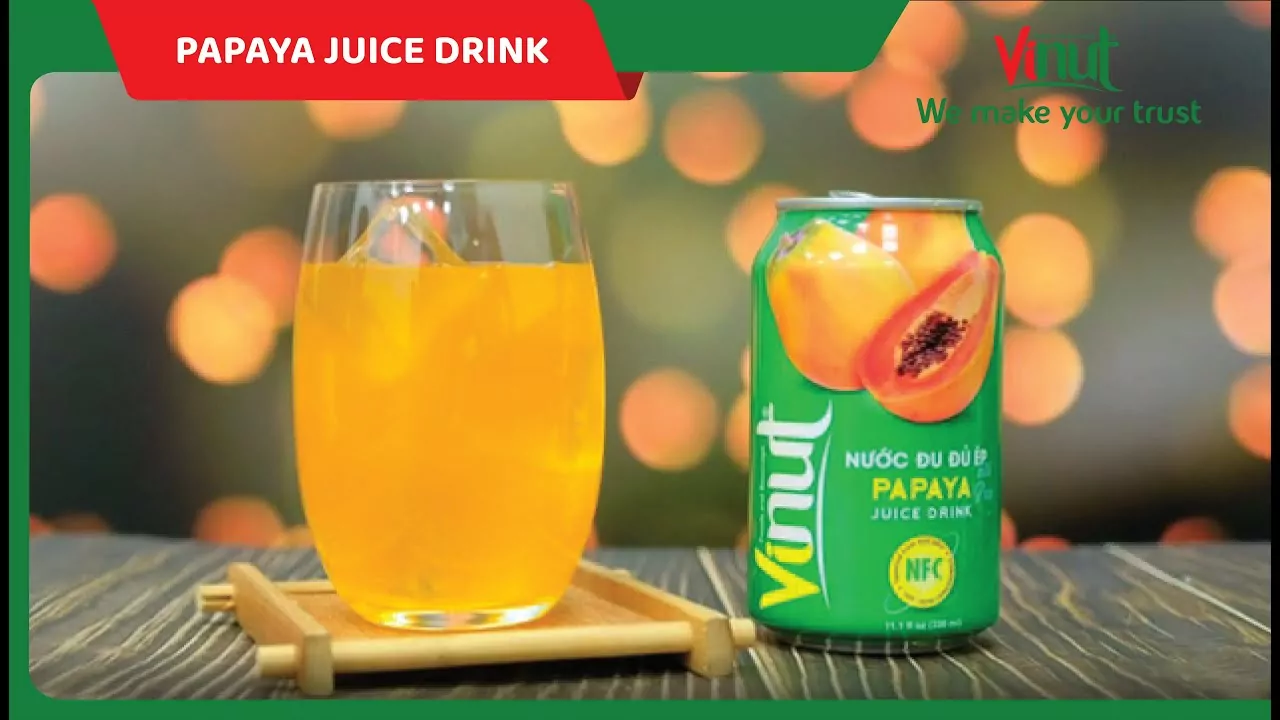The Top 5 Biggest Beverage Companies in the World

As consumers, we are spoiled for choice when it comes to beverages. From soft drinks and juice to wine and spirits, the beverage industry continues to grow and evolve. But behind every drink we enjoy, there is a large company working tirelessly to bring it to our shelves. In this article, we will explore the top 5 biggest beverage companies in the world, their history, products, and impact on the industry.
Biggest Beverage Companies
Coca-Cola Company
The Coca-Cola Company needs no introduction. Founded in 1892, this American multinational company has become a household name all around the world. With its iconic red and white logo and refreshing carbonated drinks, it is the largest non-alcoholic beverage company in the world. In fact, “Coca-Cola” is the second most recognized word in the world, after “hello.”
History
The origins of Coca-Cola can be traced back to a small pharmacy in Atlanta, where pharmacist John Pemberton created a caramel-colored syrup and mixed it with carbonated water, selling it as a tonic. It wasn’t until 1886, when businessman Asa Griggs Candler bought the recipe and the rights to the brand, that Coca-Cola started to gain popularity. Today, the company has over 500 brands in its portfolio, including Sprite, Fanta, and Minute Maid.
Products
While Coca-Cola’s most famous product is its flagship soda, the company also offers a wide range of other beverages such as juices, sports drinks, energy drinks, and even tea and coffee. In recent years, they have been focusing on diversifying their product line to include healthier options, such as sparkling water and plant-based beverages.
Impact
With over 700,000 employees and operations in more than 200 countries, Coca-Cola has a massive impact not only on the beverage industry but also on the global economy. It is estimated that the company’s products reach over 1.9 billion people every day. However, their success has also brought about criticism for their environmental practices and contribution to the obesity epidemic with their sugary drinks.
PepsiCo
Another American multinational corporation, PepsiCo, comes in second place on our list of biggest beverage companies. Founded in 1898, PepsiCo is known for its flagship product, Pepsi-Cola, as well as other popular brands such as Mountain Dew, Tropicana, and Gatorade.
History
PepsiCo’s history can be traced back to a small pharmacy in New Bern, North Carolina, where Caleb Bradham created “Brad’s Drink,” a combination of sugar, water, caramel, lemon oil, and nutmeg. The name was changed to Pepsi-Cola in 1898, and the brand started to gain popularity in the US. Today, PepsiCo has operations in more than 200 countries and employs over 300,000 people.
Products
PepsiCo offers a wide range of beverages, including carbonated soft drinks, juices, sports drinks, and tea. In addition, they also have a food division, producing popular snacks such as Lay’s chips, Doritos, and Quaker Oats. Similar to Coca-Cola, PepsiCo has been focusing on expanding its product line to include healthier options, such as bottled water and low-calorie drinks.
Impact
With a strong presence in the global market, PepsiCo has a significant impact on the beverage industry. However, like its competitor, they have also faced criticism for their environmental practices and unhealthy products. They have also made efforts to reduce their carbon footprint and promote sustainability, with goals to have 100% recyclable, compostable, or biodegradable packaging by 2025.
Biggest Juice Companies
Nam Viet Foods Beverage Company (VINUT brand)

Nam Viet Foods Beverage Company (VINUT) is a Vietnamese manufacturer and exporter of soft drinks, specializing in fruit juice, coconut water, and fruit milk. They were established in 2016 and have quickly gained a reputation for high-quality products and excellent customer service.
History:
- Founded in 2016
- 100% Vietnamese owned
- 25 years of experience in the beverage field
- Originally a small-scale production with 65 products
- Now exports to over 45 countries worldwide
Products:
- VINUT brand
- Jojonavi brand
- Joy brand
- Fruit juices
- Coconut water
- Fruit milk
- Other beverages
Mission:
To bring “Made in Vietnam” products to the world.
Values:
- Quality
- Innovation
- Customer service
- Sustainability
Achievements:
- Rapidly conquered the trust of clients worldwide
- Won multiple awards for product quality and innovation
Future plans:
- Expand into new markets
- Develop new products
- Continue to focus on quality and customer service
Impact:
- Provides employment for over 500 people in Vietnam
- Supports local farmers
- Contributes to the Vietnamese economy
Overall, Nam Viet Foods Beverage Company is a young and dynamic company with a bright future. They are committed to providing high-quality products and excellent customer service, and they are well on their way to becoming a leading global beverage company.
[Image of Nam Viet Foods Beverage Company products]
Additional information:
- Website: https://vinut.com.vn/
- LinkedIn: https://www.linkedin.com/company/vinut
- Facebook: https://www.facebook.com/vinutbev
I hope this information is helpful. Please let me know if you have any other questions.
The Kraft Heinz Company
The Kraft Heinz Company is an American food and beverage company that was formed in 2015 through the merger of Kraft Foods Group and H.J. Heinz Company. While it is primarily known for its food products, it also has a significant presence in the juice industry.
History
The history of The Kraft Heinz Company dates back to 1869, when Henry John Heinz started his own food company, which later became known as the H.J. Heinz Company. In 1903, James L. Kraft founded his cheese company, which eventually merged with the H.J. Heinz Company in 2015. Today, The Kraft Heinz Company has a wide range of juice brands, including Capri Sun, Kool-Aid, and Tropicana.
Products
The Kraft Heinz Company offers a variety of juice products, including fruit juices, fruit drinks, and juice blends. Their brands are known for their bright packaging and fruity flavors, making them popular among children and adults alike.
Impact
With over 25,000 employees and operations in more than 40 countries, The Kraft Heinz Company has a considerable impact on the global market. However, they have faced financial challenges in recent years, leading to company-wide restructuring and the discontinuation of some of their products.
Ocean Spray Cranberries Inc.
Ocean Spray Cranberries Inc. is a US agricultural cooperative that produces and markets cranberry and grapefruit juice. It is one of the oldest and largest cooperatives in the world, with over 700 farmer-owners across North America.
History
The Ocean Spray brand was born in 1930 when three cranberry growers from Massachusetts joined forces to create a cranberry juice cocktail. Today, Ocean Spray is not only known for its juices but also for its other cranberry-based products such as sauces, snacks, and supplements.
Products
Ocean Spray offers a wide range of juice products, including 100% juice blends, low sugar juices, and sparkling juices. They also have a line of cranberry supplements, marketed for their health benefits.
Impact
As a cooperative, Ocean Spray directly impacts the lives of its farmer-owners and their families. The company also actively promotes sustainability and has been working towards reducing its carbon footprint through various initiatives, such as using renewable energy sources and implementing water conservation practices.
Biggest Liquor Companies
Diageo plc
Diageo plc is a British multinational alcoholic beverages company that owns some of the most famous liquor brands in the world. Established in 1997, it is currently the world’s largest producer of spirits and a major producer of beer and wine.
History
The origins of Diageo can be traced back to 1759 when Arthur Guinness started brewing beer in Dublin, Ireland. In 1886, John Walker Sons began producing whisky in Scotland, and in 1888, Justerini Brooks was founded in London, specializing in wine and spirits. These companies eventually merged to form the present-day Diageo, which now has over 200 brands in its portfolio, including Johnnie Walker, Smirnoff, and Guinness.
Products
Diageo offers a wide range of spirits, including vodka, gin, rum, tequila, and whiskey, along with beer and wine. Their brands are known for their quality and prestige, making them top choices for consumers all around the world.
Impact
With over 30,000 employees and operations in more than 180 countries, Diageo holds a significant share of the global liquor market. However, like other beverage companies, they have faced criticism for their marketing strategies and impact on public health due to the harmful effects of alcohol consumption.
Pernod Ricard
Pernod Ricard is a French multinational wine and spirits company that was formed in 1975 through a merger of two French alcohol companies. It is currently the world’s second-largest wine and spirits company, with a portfolio of over 300 brands.
History
Pernod Ricard’s origins can be traced back to 1805 when Jean-Baptiste Ricard started producing anise-based liqueurs in Marseille, France. In the late 19th century, Paul Ricard developed the iconic Pernod absinthe, which eventually became the company’s namesake. Today, Pernod Ricard owns some of the most famous liquor brands, including Absolut Vodka, Jameson Irish Whiskey, and Malibu Rum.
Products
Pernod Ricard offers a wide range of spirits, including vodka, gin, whiskey, rum, tequila, and liqueurs, along with champagne and wine. They also have a strong presence in emerging markets, where they offer locally-made drinks such as baijiu in China and rakı in Turkey.
Impact
With over 18,000 employees and operations in more than 80 countries, Pernod Ricard is a major player in the global liquor industry. However, like other companies, they have faced criticism for their marketing strategies and impact on public health. In recent years, they have been working towards promoting responsible drinking and implementing sustainable practices.
Biggest Wine and Spirits Companies
Constellation Brands
Constellation Brands is an American producer and marketer of beer, wine, and spirits. Founded in 1945, it has become the largest importer of beer in the US and one of the largest wine producers in the world.
History
The history of Constellation Brands dates back to 1945 when Marvin Sands opened a small wine-making operation in New York. In the 1970s, the company expanded its product line to include beer and spirits, and in 2007, they acquired the famous Robert Mondavi Corporation, solidifying their position in the wine industry. Today, Constellation Brands owns well-known brands such as Corona, Modelo, and Svedka Vodka.
Products
Constellation Brands offers a wide range of products, including beer, wine, and spirits. They have a strong presence in the Mexican beer market, with several popular imported brands. In addition, they also offer premium wines from various regions around the world and a variety of spirits catering to different tastes and preferences.
Impact
With over 9,000 employees and operations in more than 100 countries, Constellation Brands has a considerable impact on the global beverage industry. However, they have faced criticism for their involvement in the production and distribution of high-alcohol content drinks, particularly in developing countries.
Anheuser-Busch InBev
Anheuser-Busch InBev is a Belgian multinational drink and brewing company that was formed in 2008 through a merger between two major beer companies. It is currently the world’s largest brewer and one of the top producers of wine and spirits.
History
The origins of Anheuser-Busch InBev can be traced back to 1366 when Den Hoorn brewery was founded in Leuven, Belgium. In 2004, Interbrew and AmBev merged to form InBev, which later acquired Anheuser-Busch in 2008, creating the present-day company. With a portfolio of over 500 brands, including Budweiser, Stella Artois, and Beck’s, Anheuser-Busch InBev is a dominant force in the global beer market.
Products
While Anheuser-Busch InBev is primarily known for its beer brands, they also offer a variety of other alcoholic beverages, including cider, wine, and spirits. They have been expanding their product line to include non-alcoholic drinks as well, such as energy drinks and soft drinks.
Impact
With over 170,000 employees and operations in more than 50 countries, Anheuser-Busch InBev has a massive impact on the global beverage market. However, they have also faced criticism for their aggressive marketing strategies and monopolistic practices, particularly in developing countries.
FAQs
What is the biggest beverage company in the world?
The Coca-Cola Company is currently the largest non-alcoholic beverage company in the world.
What is the biggest juice company?
The Kraft Heinz Company, with brands such as Capri Sun and Tropicana, is the largest juice company in the world.
Which are the biggest liquor companies?
Diageo plc and Pernod Ricard are the two largest liquor companies in the world.
Who owns Ocean Spray?
Ocean Spray Cranberries Inc. is a US agricultural cooperative owned by over 700 cranberry growers.
How many brands does Constellation Brands own?
Constellation Brands owns over 100 brands, including popular names such as Corona and Svedka Vodka.
Conclusion
The beverage industry continues to thrive, with new products and companies emerging every year. However, as we can see from our list of the top 5 biggest beverage companies, there are some major players that dominate the market. From carbonated drinks and juices to beer and spirits, these companies have a significant impact on how we consume and perceive beverages. While they have faced criticism for their marketing strategies and impact on public health and the environment, they also continue to innovate and diversify their product lines to cater to changing consumer preferences. As consumers, it is essential to be mindful of our choices and support companies that align with our values.
